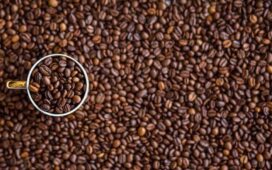A good night’s sleep isn’t just about comfort or routine—it’s deeply influenced by what you eat. Nutrition plays a surprising role in helping the body and mind prepare for rest. Certain foods can calm your system, balance hormones, and signal your brain that it’s time to unwind. By understanding how diet impacts sleep, you can naturally improve your ability to fall asleep quickly and wake up refreshed.
Balanced Meals Support Restful Nights
Eating balanced meals throughout the day ensures your body has the nutrients it needs for proper function. Meals rich in protein, healthy fats, and complex carbohydrates stabilize blood sugar, reducing nighttime spikes that can disturb sleep. When your body isn’t stressed by sudden drops or surges in energy, it’s easier to fall asleep quickly. Proper nutrition keeps your body in a steady rhythm, paving the way for restful nights.
Foods That Help You Fall Asleep Quickly
The phrase fall asleep quickly refers to the ability to transition from wakefulness to deep sleep without prolonged tossing and turning. Certain foods contain compounds that encourage this process. Bananas, almonds, and oats are high in magnesium and tryptophan, which help relax muscles and boost serotonin. Warm milk or herbal teas like chamomile can also prepare your body for sleep. Including these in your evening routine makes it easier to fall asleep quickly and consistently.
Evening Snacks That Promote Sleep
Late-night hunger doesn’t have to sabotage rest. Light evening snacks that combine protein and carbohydrates are ideal. A small portion of yogurt with berries or whole-grain crackers with nut butter can increase serotonin production. Avoid heavy, spicy, or sugary foods, which can disrupt digestion and make it harder to fall asleep quickly. Smart snack choices help the body wind down gently without unnecessary stimulation.
Nutrients That Encourage Relaxation
Magnesium, calcium, and B vitamins are critical for relaxation and sleep quality. Magnesium, found in leafy greens, nuts, and seeds, reduces stress and calms nerves. Calcium supports melatonin production, which regulates your sleep cycle. Vitamin B6, present in fish and poultry, helps convert tryptophan into serotonin. A diet rich in these nutrients signals your body that it’s time to rest and allows you to fall asleep quickly each night.
Hydration and Sleep Quality
Staying hydrated throughout the day is essential, but timing matters. Drinking enough water helps maintain bodily functions that impact sleep. However, avoid consuming large amounts right before bed to prevent disruptive bathroom trips. Herbal teas like chamomile or peppermint provide hydration and relaxation without overloading your system, supporting your ability to fall asleep quickly.
Avoiding Sleep Disruptors in Your Diet
Caffeine, alcohol, and high-sugar foods are major culprits that interfere with sleep. Caffeine can stay in the system for hours, delaying the onset of rest. Alcohol may make you drowsy initially but disrupts deeper stages of sleep. Excess sugar causes energy spikes that keep your mind alert. Limiting these substances in the evening strengthens your natural sleep rhythm and helps you fall asleep quickly.
Conclusion
Nutrition is a powerful tool for improving sleep. By choosing the right foods, balancing meals, and focusing on nutrient-rich snacks, you signal your body that it’s time to rest. Magnesium, tryptophan, and B vitamins, along with proper hydration and avoidance of stimulants, work together to make it easier to fall asleep quickly every night. Small adjustments to your diet can lead to significant improvements in both sleep quality and overall well-being.















